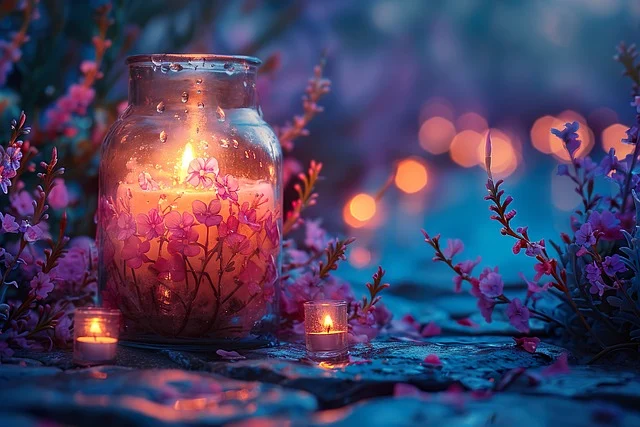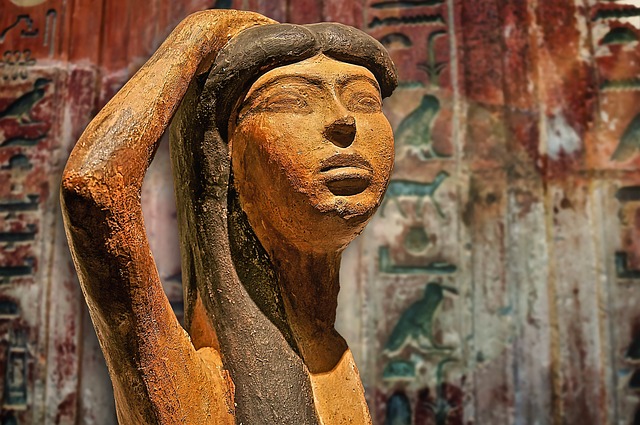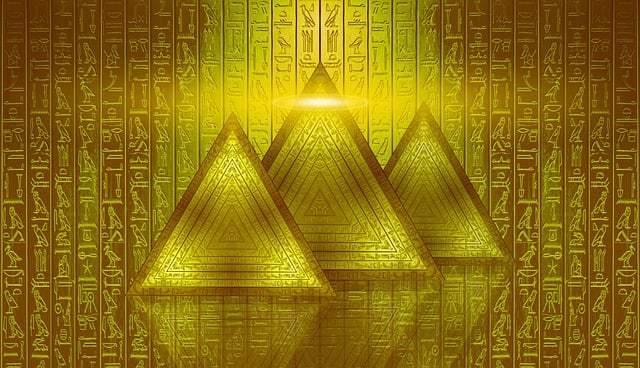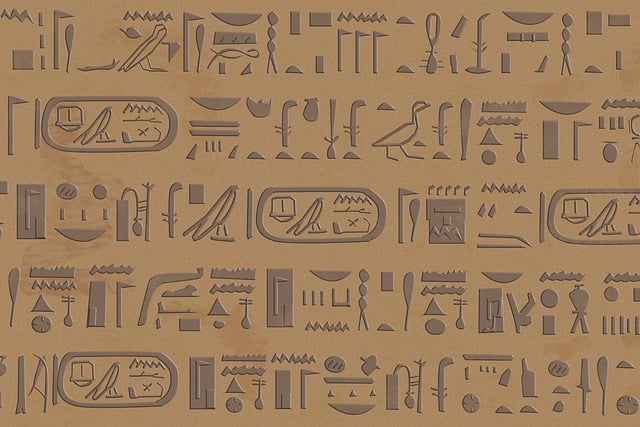The Role of Scent in Egyptian Love Magic
In the rich tapestry of ancient Egyptian culture, magic held a significant place, intricately woven into daily life, religion, and social customs. Among the many facets of Egyptian magic, love magic stands out as a compelling intersection of spirituality, desire, and ritual. Central to this practice was the use of scent — an intangible yet potent element believed to influence emotions, attract affection, and invoke divine forces. This article explores the pivotal role of scent in Egyptian love magic, tracing its cultural significance, ritual applications, and symbolic meanings within the context of ancient Egyptian belief systems.
Understanding Love Magic in Ancient Egypt
Context and Purpose
Love magic in ancient Egypt was primarily aimed at attracting a desired partner, strengthening existing relationships, or rekindling affection. Unlike modern conceptions of magic as mere superstition, Egyptian magic (known as heka) was an official and sacred practice, sanctioned by religious authorities and embedded in the social fabric.
Love spells, amulets, and rituals were often performed to ensure romantic success or to resolve difficulties in relationships. These acts combined verbal incantations, symbolic objects, and sensory stimuli—among which scent played an indispensable role.
The Role of Heka in Egyptian Society
Heka, often translated as “magic,” was seen not only as a tool for manipulating supernatural forces but also as a means of harmonizing the human and divine realms. Practitioners of heka, including priests and magicians, used various mediums such as words, gestures, and materials infused with symbolic power. Scents, derived from flowers, resins, and oils, were among these potent materials.
Scent and Symbolism in Ancient Egypt
The Cultural Significance of Aroma
Scents were deeply embedded in Egyptian religious and social life. Aromatic substances were used in daily hygiene, religious offerings, and embalming, symbolizing purity, protection, and divine presence.
Perfumes were crafted from natural ingredients like myrrh, frankincense, cinnamon, lotus, and various flowers. The Egyptians believed that pleasing fragrances could attract gods and positive spirits, while unpleasant smells repelled evil forces.
Scent as a Medium for Love
In love magic, scent functioned on multiple levels:
- Attraction: Fragrances were thought to physically and spiritually attract the beloved, making the spell more effective.
- Communication: Scents conveyed messages of desire and affection, acting as a silent language between lovers.
- Divine Invocation: Fragrances helped invoke specific deities associated with love and fertility.
Key Aromatic Substances in Egyptian Love Magic
Flowers and Plants
Lotus
The lotus flower was a powerful symbol of rebirth and beauty. Its fragrance was used to promote attraction and emotional renewal in love spells.
Mandrake
Mandrake root, though more notorious in other traditions, was sometimes employed for its mystical properties, believed to stimulate desire and passion.
Resins and Oils
Myrrh
Myrrh resin was valued for its sweet, warm aroma and spiritual significance. It was used in perfumes and anointing oils to sanctify and empower love rituals.
Frankincense
Frankincense, often burned as incense, was believed to purify spaces and invite the presence of benevolent spirits, creating an auspicious atmosphere for love magic.
Olive and Sesame Oils
Base oils such as olive and sesame were infused with fragrant herbs and flowers, used to anoint the body or objects involved in the spell, sealing the magic with scent.
Ritual Practices Involving Scent
Perfuming the Body
One common practice was to anoint oneself or the intended partner with scented oils or balms. This not only enhanced physical appeal but was thought to carry magical power to attract love.
Incense Burning
Incense was burned during ceremonies to create a sacred space. The rising fragrant smoke was believed to carry prayers to the gods and enchant the atmosphere with divine favor.
Use of Scented Amulets and Objects
Amulets impregnated with aromatic oils were worn to attract love or protect relationships. These objects combined visual symbolism with olfactory potency to maximize magical effect.
Deities Associated with Love and Scent
Hathor
Hathor, goddess of love, beauty, and fertility, was closely linked to perfumes and fragrances. Offerings to Hathor often included scented oils and flowers, emphasizing the sacred nature of scent in matters of the heart.
Isis
Isis, the mother goddess and protector of magic, was invoked in love spells for her power to heal and bind lovers. Her cult utilized perfumes in rituals to invoke her blessings.
Bes
The dwarf god Bes, protector of households and childbirth, was also associated with love and sexuality. Fragrant offerings to Bes were common in domestic love magic.
The Psychological and Social Impact of Scent in Love Magic
Scent and Emotional Response
Modern science confirms that smell can influence mood and memory, reinforcing the ancient belief in scent’s power. In Egyptian love magic, aromas were carefully chosen to evoke feelings of desire, comfort, and intimacy.
Scent as a Social Signal
In ancient Egypt’s hierarchical society, scent also functioned as a social marker. Wearing luxurious perfumes was a sign of status and refinement, enhancing the wearer’s appeal in romantic contexts.
Examples of Egyptian Love Spells Featuring Scent
Love Spell Papyrus
Many papyri containing love spells instruct the use of scented oils and incense. For example, some texts call for the anointing of statues or personal belongings with myrrh and lotus oil to attract a specific individual.
The Use of Perfumed Wicks
In some rituals, scented wicks soaked in aromatic oils were lit near the altar, symbolizing the burning passion desired between lovers and inviting divine assistance.
Legacy of Egyptian Love Magic and Scent
Influence on Later Traditions
The Egyptian integration of scent into love magic influenced later Greco-Roman and Middle Eastern magical practices. Perfumes and incense remained key components in love-related rituals throughout antiquity.
Modern Interpretations
Today, the ancient Egyptian approach to scent and love magic inspires both historical studies and contemporary spiritual practices. Aromatherapy and ritual perfuming in various cultures echo the profound connection between scent and emotion first cultivated in Egypt.
Conclusion
The role of scent in Egyptian love magic reveals a sophisticated understanding of how the senses, spirituality, and emotion intertwine. Far from being a mere accessory, fragrances were powerful tools used to shape human relationships, invoke divine favor, and express the deepest desires of the heart. This ancient practice underscores the enduring human fascination with scent as a bridge between the physical and metaphysical realms of love.
Bibliography
- Hrafnkell Jóhannsson, Magic in Ancient Egypt: A Study of Ritual Practice and Belief, Routledge, 2020, ISBN: 9780367353206
- Geraldine Pinch, Magic in Ancient Egypt, University of Texas Press, 1994, ISBN: 9780292712567
- Richard H. Wilkinson, The Complete Gods and Goddesses of Ancient Egypt, Thames & Hudson, 2003, ISBN: 9780500051266
- Patricia A. B. Barnard, Love and Marriage in Ancient Egypt, Oxford University Press, 2007, ISBN: 9780199289169
- E. A. Wallis Budge, Egyptian Magic, Dover Publications, 1972 (reprint), ISBN: 9780486201773



